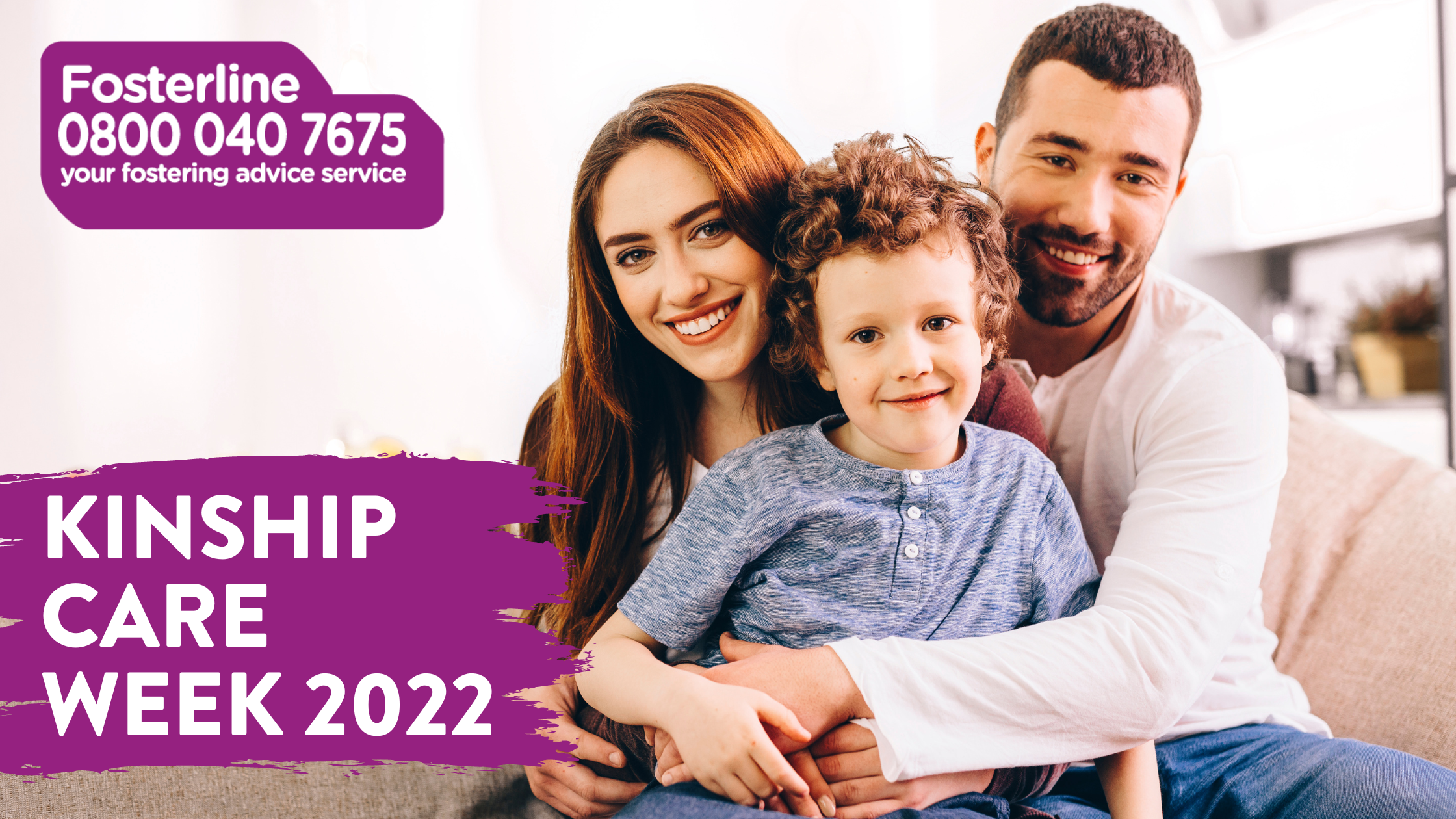
Kinship Care Week is a great time to share information about kinship carers and how Fosterline can support them.
What is Kinship care?
Kinship care is an umbrella term that includes several different care arrangements that may be in place when a child or young person is cared for by someone known to them other than their birth parent(s). Fosterline receives many calls about kinship and often the carer is unclear which arrangement applies to their situation.
Fosterline can provide information to any kinship carers (or prospective kinship carer) in England and our friendly advisers provide impartial confidential support. Below are the main types of kinship arrangements and some examples of how Fosterline can help.
Kinship foster carers (or often referred to as family and friends or connected person foster carers) are assessed by the local authority in relation to a child that is known to them that is in the care of the local authority. In the care of the local authority usually refers to a child that is subject to an Emergency Protection Order, an interim or full Care Order , or has been accommodated into care at the request of the birth parent. The kinship foster carer will receive an allowance to care for the child and may also receive a fee. The placement will be supervised by the local authority. It may be possible to be assessed whilst caring for the child depending on the circumstances. Kinship foster carers are required to complete training and meet fostering standards and when approved they will be subject to regular reviews.
Fosterline can support kinship carers by
- Advising on the process of assessment and answering any questions about becoming a kinship foster carer.
- Providing independent advice and support if you are already approved as a kinship carer and have queries or any concerns arising such as care planning disputes, allegations, finances, complaints etc.
- Making a referral to our free Fosterline Plus service (for carers in England) for tailored tax and benefits advice as all kinship foster carers are self-employed and will be required to complete an annual tax return.
- Providing information on organisations who can give additional support or advice or information on the role of the local authority.
- Giving advice on benefits or what financial support is available for carers who reduce hours or give up work to foster.
Informal kinship carers
Informal kinship carers are immediate relatives as defined by the Children Act, caring for a child known to them at the request of the birth parent(s), who is not in the care of the local authority ‘A relative under the Children Act 1989 is defined as a ‘grandparent, brother, sister, uncle or aunt (whether full blood or half blood or by marriage or civil partnership) or step-parent’
Private fostering
Private fostering is when a child that is not in the care of the local authority is placed with someone who is not an immediate relative( as defined above) by a birth parent and the arrangement is to last longer than 28 days. The parent and the private foster carer are required to notify the local authority who will visit the placement regularly to ensure it is meeting the needs of the child. Private fostering ends at 16 (or 18 if the child has a disability). Fosterline can signpost to organisations who can provide further support and information and help clarify the role of the local authority.
If you are unsure which arrangement applies to your situation Fosterline can provide advice and support and also give information about other possible options to explore including child in need assessments, complaints etc.
Depending on your situation Fosterline can also provide additional information on special guardianship and child arrangement orders and can signpost for legal advice when appropriate.
Simply call to speak to one of our advisors on 0800 040 7675 or arrange a call back at a time that works for you.
